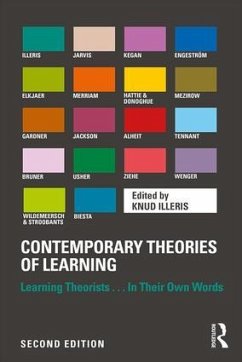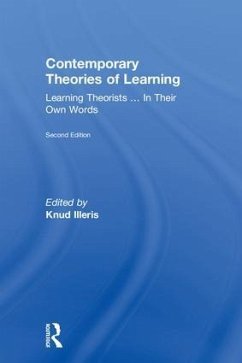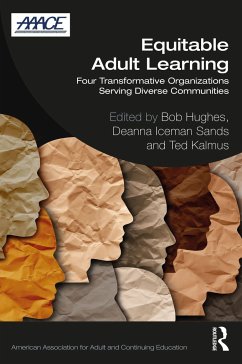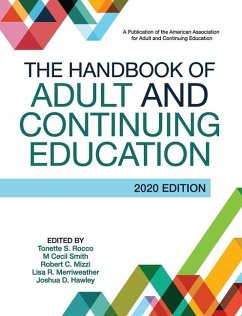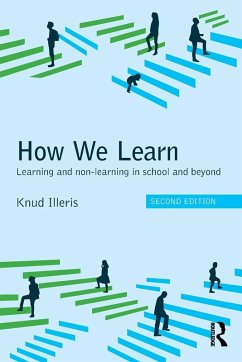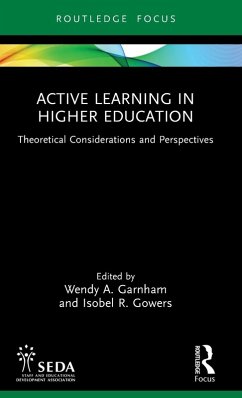
Reimagining Adult Education as World Building
Creating Learning Ecologies for Transformation
Herausgegeben: Nicolaides, Aliki; Lim, Ahreum; Herr, Neal; Barefield, Trisha
Versandkostenfrei!
Versandfertig in 6-10 Tagen
45,99 €
inkl. MwSt.
Weitere Ausgaben:

PAYBACK Punkte
23 °P sammeln!
Reimagining Adult Education as World Building offers a new way of thinking about adult education by re-envisaging how adult education works. It explores how the process of world building, or the invention of a new world or a set of concepts, can be translated into actual and feasible action when turning towards complex, real-life problems.Cultivating contexts where adult educators can become change agents, who recognize that the individual and community are intricately entangled, demands that educators grow new capacities, make new tools, develop thicker networks, and cultivate intentional lin...
Reimagining Adult Education as World Building offers a new way of thinking about adult education by re-envisaging how adult education works. It explores how the process of world building, or the invention of a new world or a set of concepts, can be translated into actual and feasible action when turning towards complex, real-life problems.
Cultivating contexts where adult educators can become change agents, who recognize that the individual and community are intricately entangled, demands that educators grow new capacities, make new tools, develop thicker networks, and cultivate intentional links amongst each other to foster ecologies of transformation. This book shows how educators can create an ecology or environment for transformative thinking where students can learn to collaborate and use world building tools to create new responses to current issues. It begins by explaining the philosophical underpinnings of world building and the tools that translate pragmatic imagination into scaffolds for individual and collective capacity building. It also illustrates how the worldbuilding protocol makes a difference in adult learning and how this pedagogical tool introduces the ecological approach to adult education. Each chapter explores a practical case study, showing how learners have applied worldbuilding tools to complex challenges.
Showing how to apply the world building protocol in a classroom setting, this edited collection will be valuable to Adult Education scholars, researchers, practitioners, and learning facilitators.
Cultivating contexts where adult educators can become change agents, who recognize that the individual and community are intricately entangled, demands that educators grow new capacities, make new tools, develop thicker networks, and cultivate intentional links amongst each other to foster ecologies of transformation. This book shows how educators can create an ecology or environment for transformative thinking where students can learn to collaborate and use world building tools to create new responses to current issues. It begins by explaining the philosophical underpinnings of world building and the tools that translate pragmatic imagination into scaffolds for individual and collective capacity building. It also illustrates how the worldbuilding protocol makes a difference in adult learning and how this pedagogical tool introduces the ecological approach to adult education. Each chapter explores a practical case study, showing how learners have applied worldbuilding tools to complex challenges.
Showing how to apply the world building protocol in a classroom setting, this edited collection will be valuable to Adult Education scholars, researchers, practitioners, and learning facilitators.





